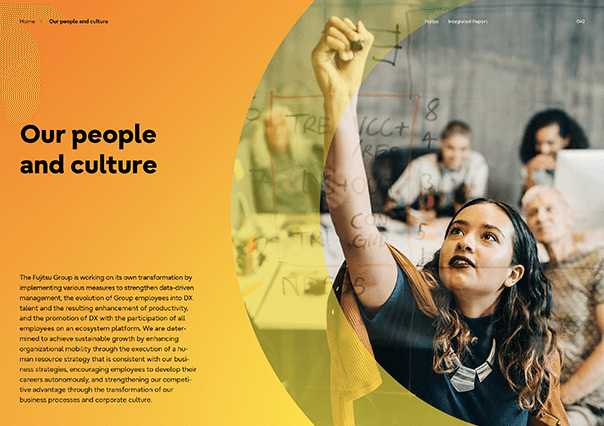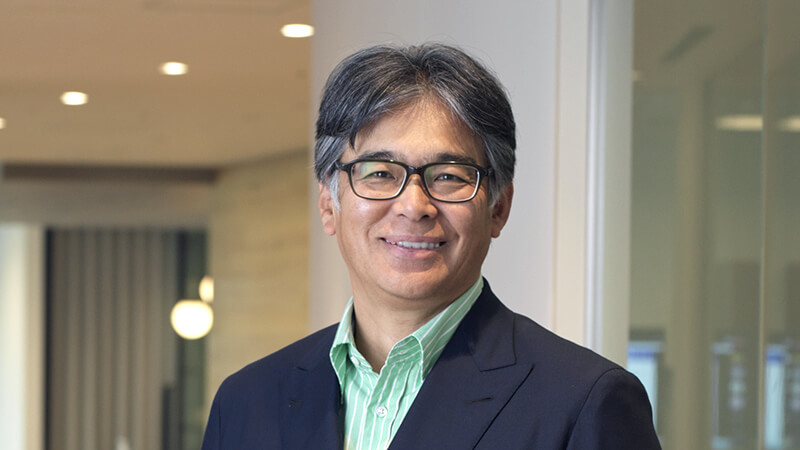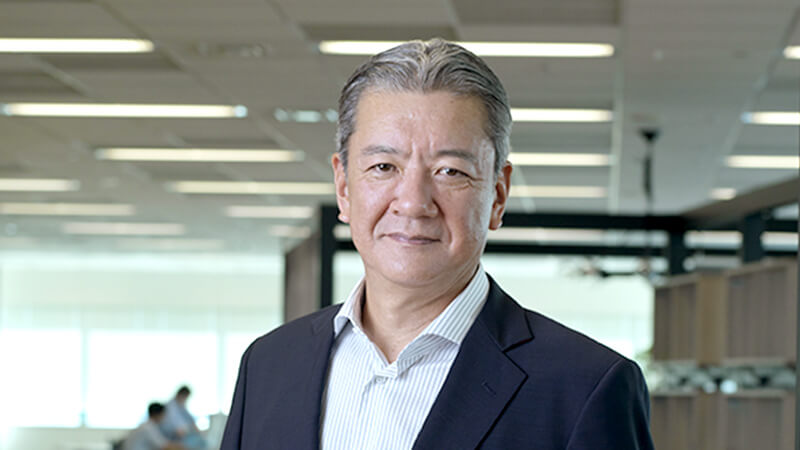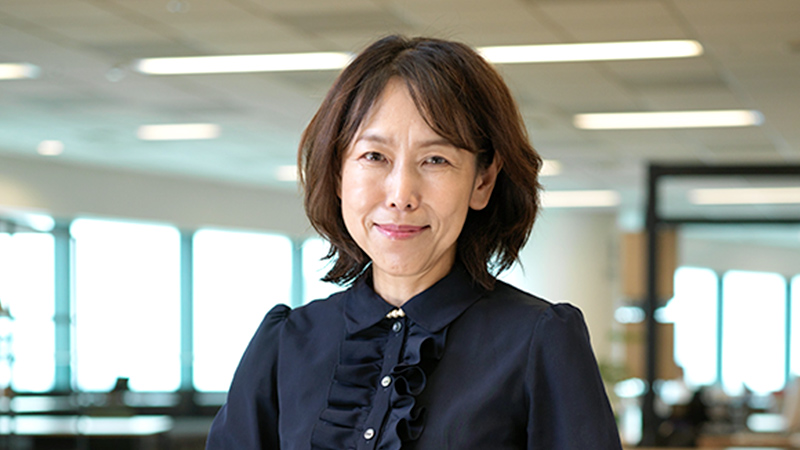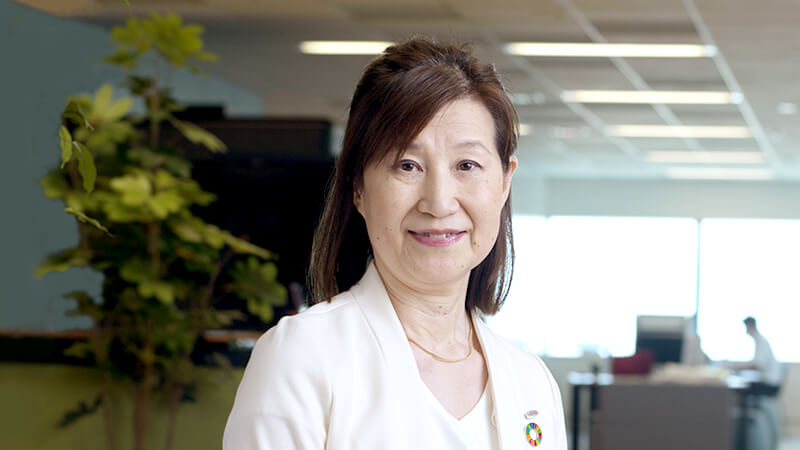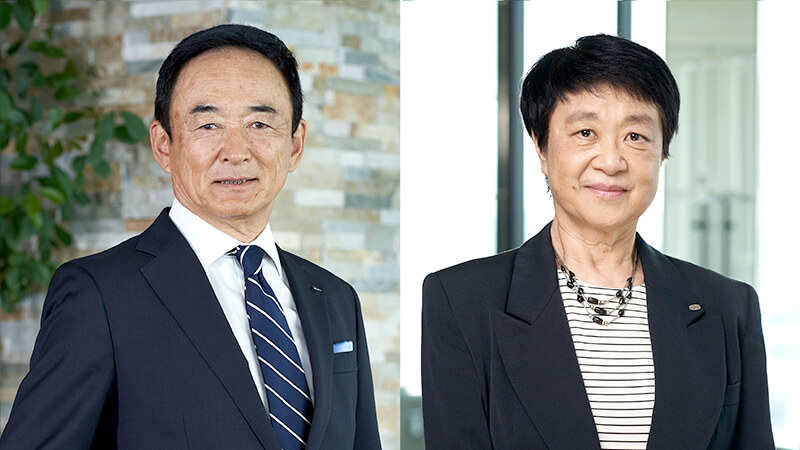Our people and culture
Human resource management

Overall human resource strategy
Human resources are the driving force behind the Fujitsu Group’s transformation and its progress toward the realization of “Our Purpose.” As we move away from a business model based on the development and operation of custom-made IT systems for each customer company and work as a DX company to solve our customers’ business challenges and the social issues that exist beyond them, the importance of human resources is increasing even more as they are the source of the value we provide to our customers. In addition, in order to transform the business model and organizational culture, it is essential that Group employees understand the significance of these transformations and are willing to work on them themselves.
Based on its human resources and organizational vision of “a company that creates innovation everywhere in society by bringing together agile and versatile people from inside and outside the Company,” the Fujitsu Group promotes various measures and monitors their progress and effectiveness through employee engagement , one of its non-financial indicators.
Aligning organizational and human resource strategies with business strategies
Job-based human resource management, which clarifies the responsibilities and human resource requirements associated with a specific job, is not only the standard in global organizations but is also an excellent mechanism for flexibly designing the organization and reassigning talent according to business strategies. For employees, there is also the great benefit of gaining many opportunities to take on attractive work challenges and options to develop their careers autonomously. The Fujitsu Group introduced job-based human resource management, which was already widespread in regions other than Japan, to executives working in Japan in April 2020 and to all employees in April 2022, and is making progress toward the establishment of a globally unified human resource management framework.
For job-based human resource management to function, not only the human resource allocation system but also the personnel evaluation and compensation systems must be designed in an integrated manner. The Group rated the job responsibilities of Fujitsu and its domestic Group companies’ personnel based on common global standards and set monthly compensation according to the rating and market level. In addition, the system that has been used to evaluate executives from the three perspectives of “impact on society and customers,” “behaviors,” and “learning & growth” was expanded to non-managerial employees in April 2022 as the common global “Connect” evaluation system.
Furthermore, authority has been delegated to business units (BUs) to formulate new graduate and mid-career hiring plans and assign hired personnel that are highly relevant to the strategies of each BU, whose duties were previously handled collectively by the corporate division. This enables flexible recruitment, training, and assignment of human resources to be in line with the BUs’ business strategies, while also strengthening the system in which the corporate division supports the BUs, thereby ensuring consistency with the human resource strategy of the entire Group.
Raising wellbeing
“Wellbeing” is the value that underlies the Fujitsu Group’s human resources and organizational transformation. Employees can continue to learn and grow on their own initiative in order to realize their career objectives, receive appropriate and fair compensation commensurate with their roles and contributions, build and maintain trust and good relationships with colleagues, family, and friends, and maintain and improve the physical and mental health of themselves and their families. All of these contribute to wellbeing.
Concerning career development in particular, we have put in place a variety of measures to encourage the evolution of our employees into DX personnel. The term “DX personnel” here does not refer to those who have acquired digital technology as a skill, but rather to those who can continue to transform themselves from the perspective of Our Purpose. This is important as the “DX” that the Fujitsu Group is aiming for emphasizes not only the use of digital technology but also the transformation of organizational culture and the mindset of employees. Based on this concept, the Group has introduced a system that fosters ownership of one’s own career and has built an educational platform that supports autonomous learning and growth in accordance with employees’ individual career vision and the jobs and challenges they want to take on.
The Work Life Shift (WLS) initiative launched in 2020 also aims to improve wellbeing. WLS promotes change through three approaches: “Smart Working,” which enables employees themselves to choose the optimal workstyle according to their types of work, objectives, and lifestyles; “Borderless Office,” which allows employees to freely choose their office environment according to the objective and content of their work; and “Culture Change,” which aims for a corporate culture based on high degrees of employee autonomy and mutual trust.

